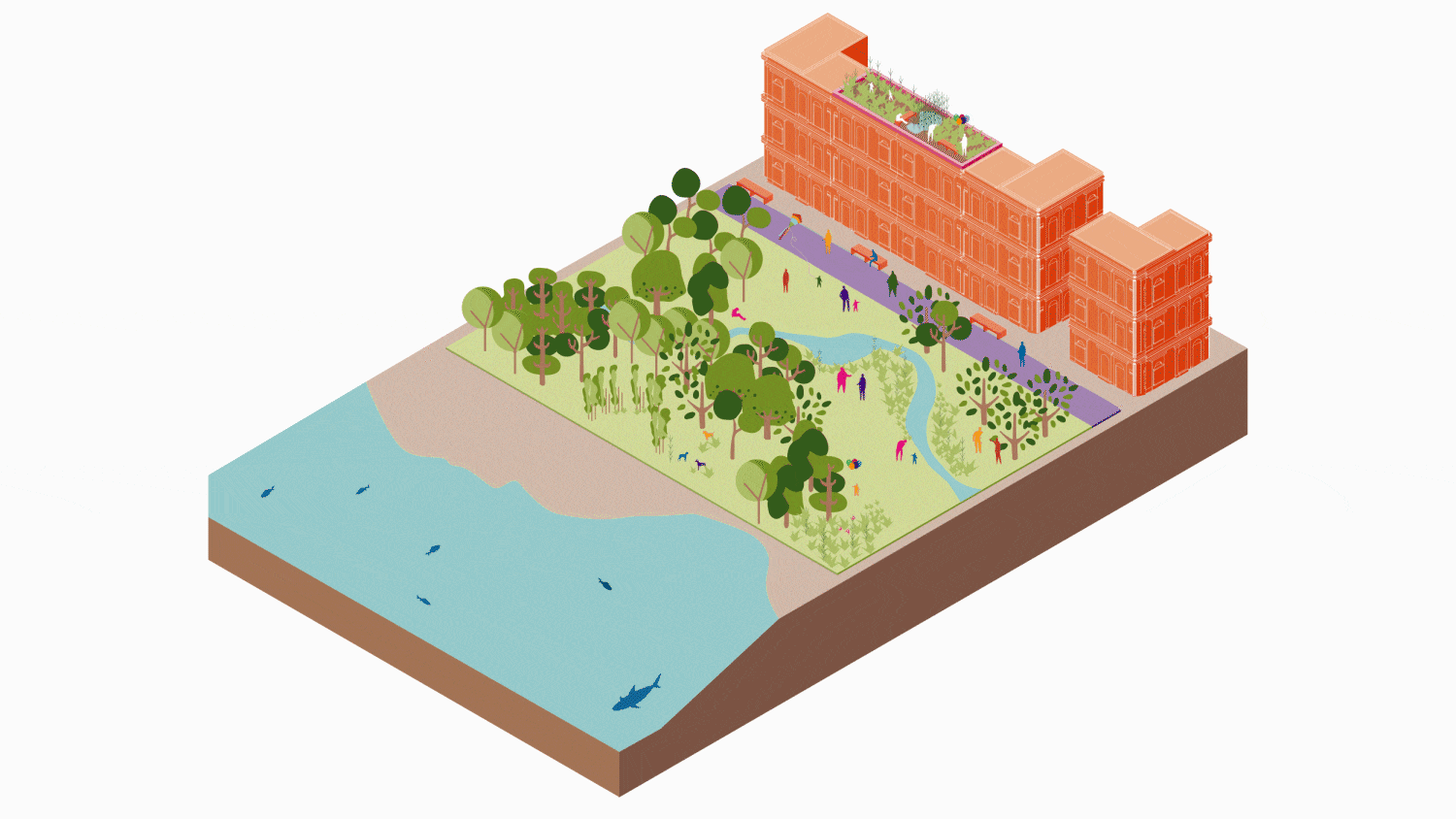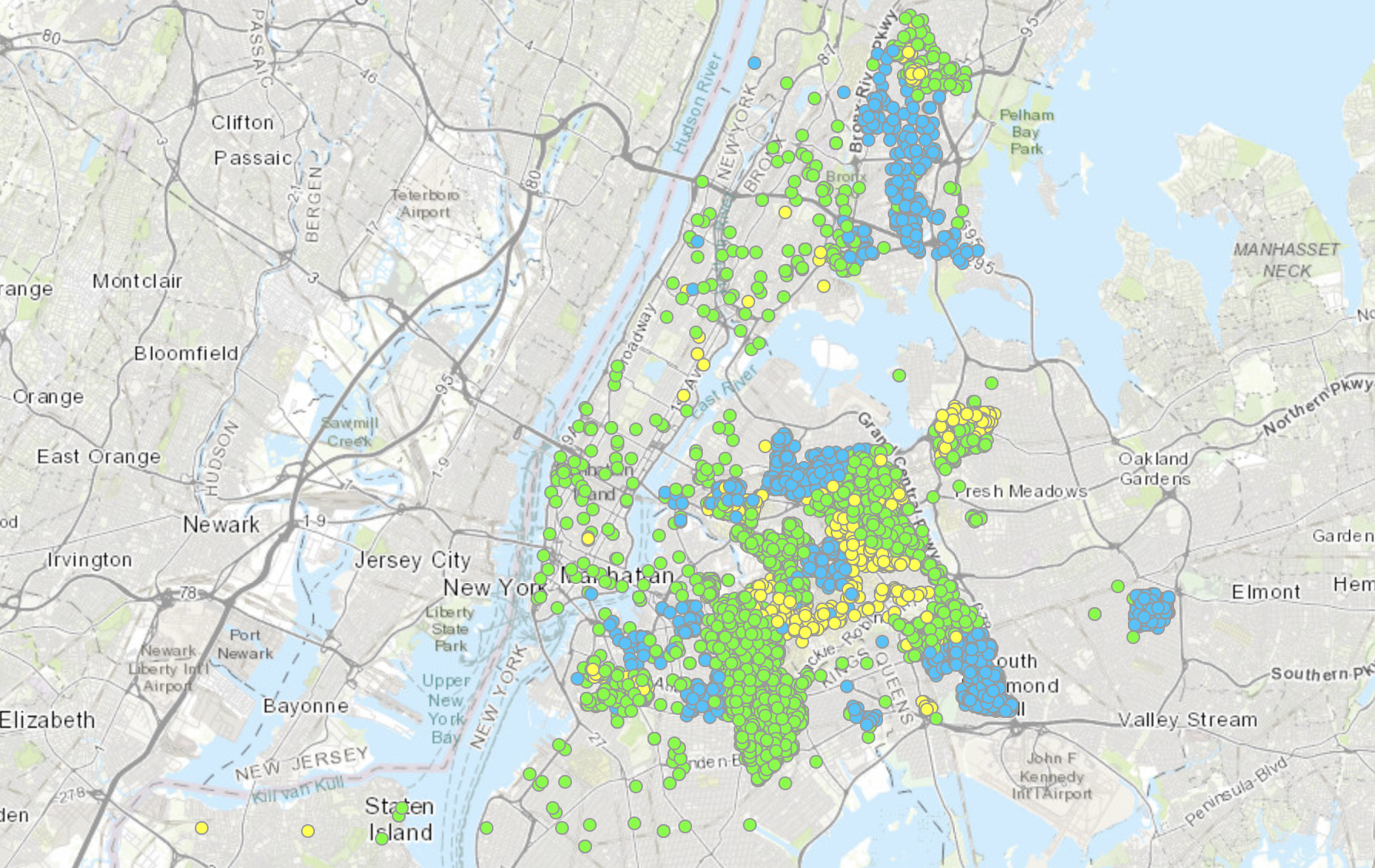Urban Ecology
Our work on Urban Ecology includes the ENABLE Project, the Ecological Resilience Indicators Story Map, green infrastructure, and design research for ecological connectivity. Continue reading for an introduction to this work and links to more information.
ENABLE Project
For the ENABLE project, USL is working with an international and transdisciplinary group to advance Green and Blue Infrastructure (GBI) in urban areas. GBI refers to infrastructure composed of vegetation, water, and other elements that minimize pollution. ENABLE researchers are testing GBI solutions in the metropolitan regions of Halle, Barcelona, Łódź, Stockholm, Oslo, and New York. Timon McPhearson is primary investigator for the New York case study and co-lead for research modules that address ecosystem services, climate resilience, and impacts of GBI on local communities.
Advancing Urban Ecology
USL Director Timon McPhearson, was recently was awarded both the Sustainability Science Award and the Innovation in Sustainability Science Award by the Ecological Society of America (ESA).
According to the ESA, McPhearson and the USL’s work provide an international perspective on how ecological research focused on urban areas can improve sustainability. “Urban areas are expected to be highly at risk from global environmental changes and this article highlights the need for a conceptual synthesis that allows urban residents to make better decisions concerning their environment and the social relations within it.” McPhearson was the lead investigator collaborating with nine other researchers on the paper “Advancing urban ecology towards a science of cities” that was highlighted in the National Science Foundation’s 2018 report titled “Sustainable Urban Systems: Articulating a Long-term Research Agenda.”
One of the papers conclusions was to “suggest that empirical and conceptual advances within urban ecology, as well as the diversity and increasing size of the field, have created the potential to transform urban ecology into a robust, more holistic science of cities, which may be more important now given the rapid urbanization of the planet.”
Urban Planet
USL Director Timon McPhearson was a co-author of the book, Urban Planet: Knowledge towards Sustainable Cities. Global urbanization promises better services, stronger economies, and more connections; it also carries risks and unforeseeable consequences. To deepen our understanding of this complex process and its importance for global sustainability, we need to build interdisciplinary knowledge around a systems approach. Urban Planet takes an integrative look at our urban environment, bringing together scholars from a diverse range of disciplines: from sociology and political science to evolutionary biology, geography, economics and engineering. It includes the perspectives of often neglected voices: architects, journalists, artists and activists. The book provides a much needed cross-scale perspective, connecting challenges and solutions on a local scale with drivers and policy frameworks on a regional and global scale. The authors argue that to overcome the major challenges we are facing, we must embark on a large-scale reinvention of how we live together, grounded in inclusiveness and sustainability.
Ecological Resilience Indicators Story Map
USL Research Associate, Nour Zein’s work explores the ecological resilience of urban spaces like NYC. Urban ecosystems like urban parks and street trees provide ecosystem services that serve as nature-based solutions to the issues of climate change resiliency and adaptation in cities. Previous research has focused on the nature of ecosystem services and their effects on urban resiliency. However, there have been fewer studies on how resilient these urban ecosystems themselves are to climate change, and therefore whether they can continue to provide services that cities rely on for well-being. Plant functional traits have been used to study the impact of climate change on ecosystem functioning and services in non-urban contexts. In this study, this traits-based approach is applied to urban contexts and is used to evaluate specific response traits to climate change with an emphasis on heat and drought. Using New York City as a case study, street tree species databases are used in conjunction with species-specific response traits data to spatially analyze the ecological resiliency of the city. Zein’s study informs local resiliency planning and adaptation by identifying areas vulnerable to climate change due to the lack of resiliency traits present.
Green Infrastructure
The Urban Systems Lab team is developing an understanding of Green Infrastructure and its relationship to equity and risk in NYC and around the country.
Design Research for Ecological Connectivity
Connect-the-Dots Project. Like most cities, New York struggles with a lack of connectivity between parks and smaller green spaces. The Networked Urban Ecology project is dedicated to linking fragmented habitats that promote biodiversity and provide important services to society. Through a program called Connect the Dots, it merges ecological research with participatory design to build innovative corridors between parkland, street vegetation, green roofs/walls, and other elements throughout the city — with emphasis on places where greenery is lacking. This network has the potential to significantly improve public health, livability, equity, resilience, and sustainability.















